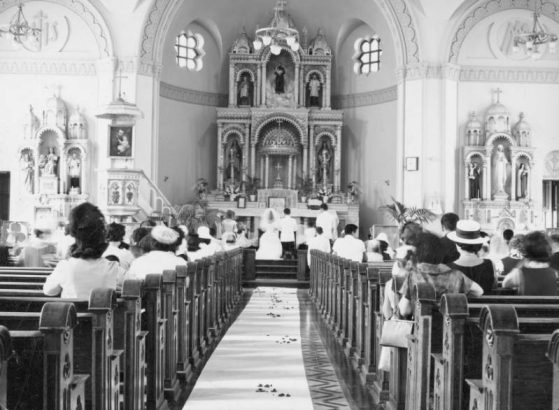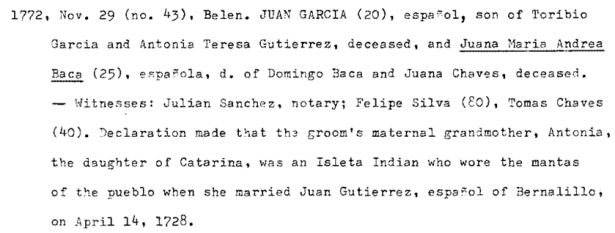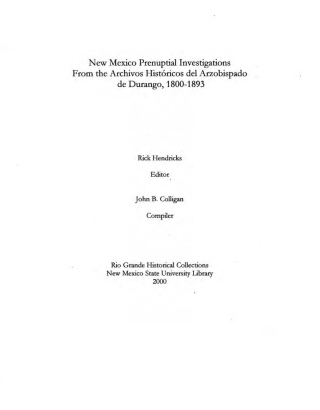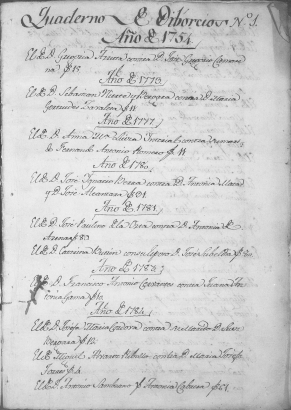Prenuptial Marriage Investigations and Divorce Records
A prenuptial marriage investigation - which is still done today before a couple gets married by a Catholic priest or deacon - aims to ensure there is no impediment to the bride and groom being married, such as incest, polygamy, age, and other social taboos. The investigation can go by several names in Spanish, including amonestación, diligencia matrimonial, or información matrimonial, among others.
These investigations can be rich with genealogical information because both parties would state basic information, including their names, their parents’ names, age, where they were from, whether they were a widow or widower, and sometimes their occupation. Some older records from the Spanish colonial era will include racial and ethnic groups, while some recent records may tell if a person is Protestant or converted to Catholicism.
The priest would record the information and then interview up to three witnesses. The responsibility of the witnesses was to confirm or refute the information. If there were any discrepancies, the priest would attempt to resolve them by writing to the presiding bishop who could grant dispensations. A bishop’s response could take several months or years, depending on a case’s complexity. Most dispensations were granted to couples wishing to marry who were within three degrees of sanguinity (blood relatives) or who were young. After the marriage investigation and if necessary, dispensations, the couple would have the banns read three times at Sunday Mass and could wed soon thereafter. Keen researchers will look for both a couples’ pre-nuptial investigation and marriage record.
Many pre-nuptial marriage investigations relevant to the Southwest, including locations in Chihuahua, Colorado, New Mexico, and Texas have been translated from Spanish to English and transcribed. Three useful resources to start with include:
- New Mexico roots ltd : a demographic perspective from genealogical, historical and geographic data found in the diligencias matrimoniales or pre-nuptial investigations (1678-1869) of the Archives of the Archdiocese of Santa Fe : multiple data extracted and here edited in a uniform presentation by years and family surnames (Online)
- New Mexico prenuptial investigations from the Archivos Historicos del Arzobispado de Durango, 1760-1799 (Online)
- New Mexico prenuptial investigations from the Archivos Historicos del Arzobispado de Durango, 1800-1893 (Online)
Divorces and annulments were rare outside of the modern era, but were granted in certain cases, such as adultery, infidelity, and infertility. These records are usually found in diocesan, university, state, or national archives. With the advent of civil registries, modern divorce cases may be found in government archives, courthouses, or the ayuntamiento (city hall). Rarely, Ancestry and FamilySearch may have some divorce records, such as Mexico City divorces from 1754 to 1819.
This series is designed to help customers deepen their research while learning about Hispanic cultural traditions and customs they may encounter in their family history and genealogy records.





Add new comment